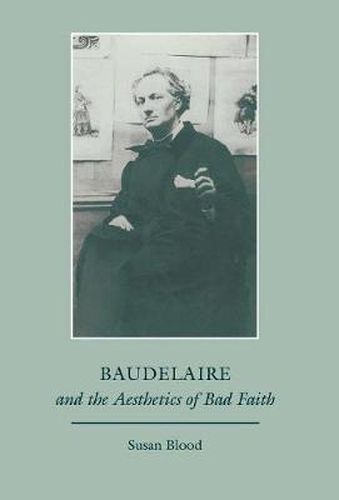Readings Newsletter
Become a Readings Member to make your shopping experience even easier.
Sign in or sign up for free!
You’re not far away from qualifying for FREE standard shipping within Australia
You’ve qualified for FREE standard shipping within Australia
The cart is loading…






This is a study of Baudelaire’s canonization in the critical debates of the twentieth century, focusing particularly on his role in the development of a modernist consciousness. Much recent work on Baudelaire assumes his modernism by emphasizing his relationship to current critical preoccupations by sounding him out on issues of race and gender, for example, or by correcting his politics. The author begins from the premise that this updating of Baudelaire mistakenly takes him for our contemporary. Instead, she attempts to treat modernism as a historical problem by seeing Baudelaire as engaged in a more difficult dialogue with twentieth-century critics. The book concentrates on two key moments in the literary history of the twentieth century, the periods following each world war. At these junctures French intellectuals intensely reconsidered their cultural patrimony and articulated something like a modernist consciousness. Baudelaire stood at the center of this process, becoming a sacred figure of modernism, and his poetry contributed to a radical reorienting of aesthetic sensibilities.
$9.00 standard shipping within Australia
FREE standard shipping within Australia for orders over $100.00
Express & International shipping calculated at checkout
This is a study of Baudelaire’s canonization in the critical debates of the twentieth century, focusing particularly on his role in the development of a modernist consciousness. Much recent work on Baudelaire assumes his modernism by emphasizing his relationship to current critical preoccupations by sounding him out on issues of race and gender, for example, or by correcting his politics. The author begins from the premise that this updating of Baudelaire mistakenly takes him for our contemporary. Instead, she attempts to treat modernism as a historical problem by seeing Baudelaire as engaged in a more difficult dialogue with twentieth-century critics. The book concentrates on two key moments in the literary history of the twentieth century, the periods following each world war. At these junctures French intellectuals intensely reconsidered their cultural patrimony and articulated something like a modernist consciousness. Baudelaire stood at the center of this process, becoming a sacred figure of modernism, and his poetry contributed to a radical reorienting of aesthetic sensibilities.